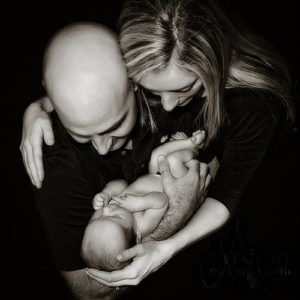 And Pharaoh’s daughter said to her, “Go.” So the maiden went and called the child’s mother. Then Pharaoh’s daughter said to her, “Take this child away and nurse him for me, and I will give you your wages.” So the woman took the child and nursed him. And the child grew, and she brought him to Pharaoh’s daughter, and he became her son.
And Pharaoh’s daughter said to her, “Go.” So the maiden went and called the child’s mother. Then Pharaoh’s daughter said to her, “Take this child away and nurse him for me, and I will give you your wages.” So the woman took the child and nursed him. And the child grew, and she brought him to Pharaoh’s daughter, and he became her son.
There are many complications in an adoption process and prospective parents don’t want to add to the list of complications by choosing an ‘open adoption’. If you haven’t heard of open adoption before, it is the process of allowing your adopted child to develop a one-to-one relationship with his or her birth family. Does that scare you? Well, you are not alone. Many couples feel uncomfortable with the idea of allowing contact with the birth family. In fact, there are many women who prefer ‘international adoptions’ in the hope that it will lessen opportunities of contact for the child with the birth family. But, is this healthy? What does the Bible have to say about open adoption? Are there any benefits associated with it?
We all know the story of Moses being adopted by Pharaoh’s daughter. But, many forget that Moses’ biological mother, Jochebed, played an important role in Moses’ upbringing. Pharaoh’s daughter allowed Jochebed to nurse Moses and be a part of his childhood. It was during this childhood that Jochebed taught Moses the Jewish faith and way of life. God used her to impart knowledge of Him to Moses and these teachings shaped Moses to build a life of faith. Had she not played an important role in Moses’ childhood, he would have remained tied to the pagan practices of Egyptians and lived a life of spiritual ignorance. This shows that God is neither against adoption nor allowing the adopted child to stay in touch with the birth family.
Open adoption throws up many questions to prospective parents: Isn’t it a painful and uncomfortable option to have my child stay in contact with his or her birth family? How do I set boundaries in their relationships with my family? What if my child wants to go back to the birth family? What kind of impact will they have on my child’s relationship with me? While all these questions are valid, you must understand that the entire adoption process has to be child-centered. The focus is on the child and his or her needs. Open adoption brings a sense of completeness to the child’s life, without having him or her deal with feelings of being abandoned and not wanted in the first place.
In their book ‘The Open Adoption Experience’, the authors compare open adoption to a couple’s relationship with their in-laws. You realize that they are an important part of your spouse’s life and you accept them as being a part of your life too. In the same manner, your child’s birth family is an important part of his or her life. Whether you become friends with the birth family or remain distantly connected, it is important to realize that you’re doing it for the mental, emotional, and spiritual health of your child. When God permits such ‘open adoptions’, there must be some merits to it!

